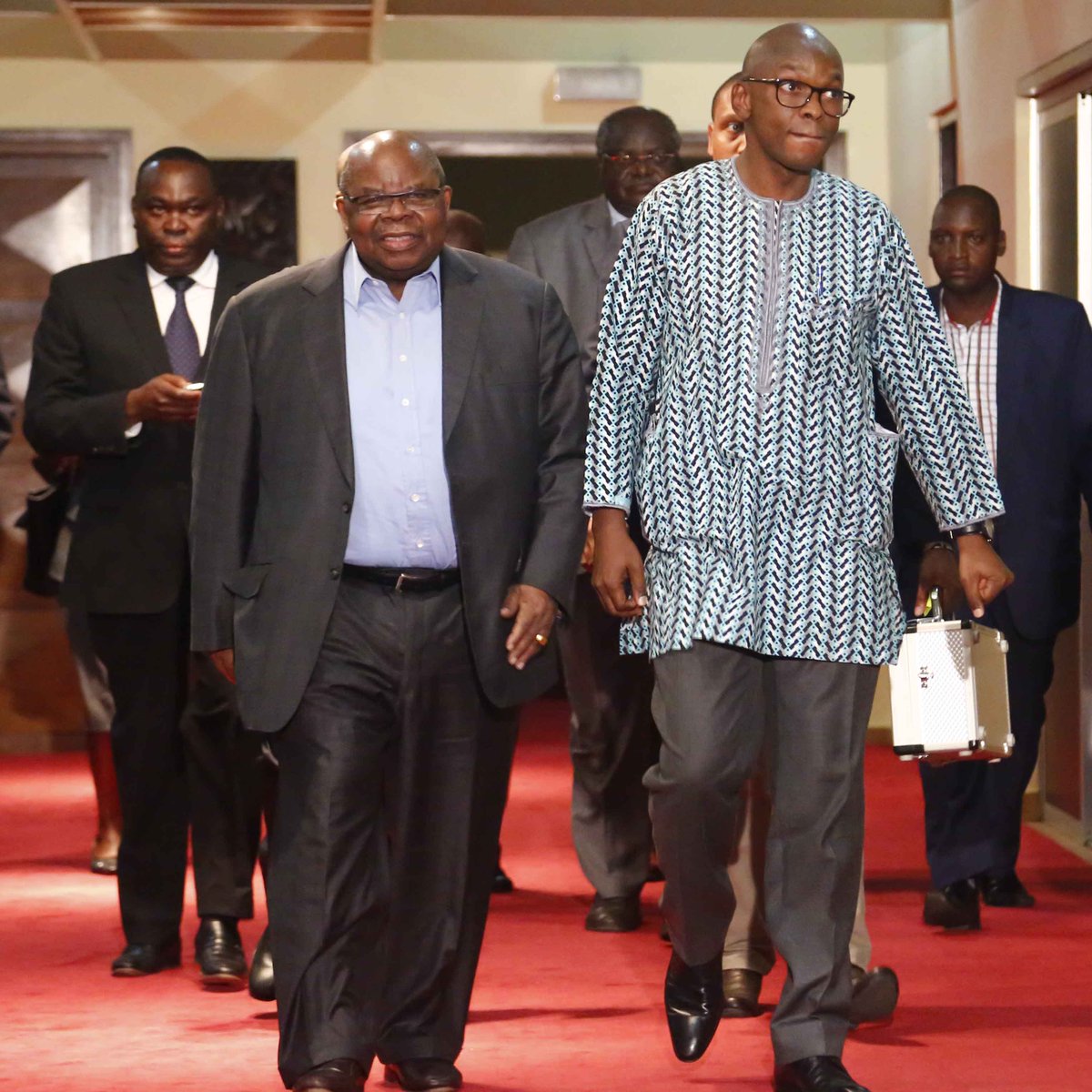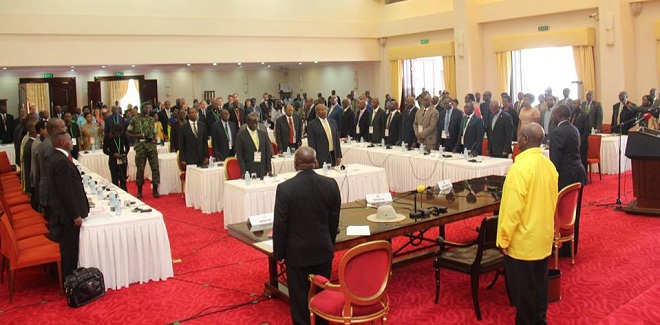
Mediator Benjamin Mkapa and Burundi’s foreign minister Nyamwite at previous talks.Nairobi, Kenya | AFP |
Burundi’s government affirmed Tuesday it will shun peace talks with opposition figures planned for later this week in Tanzania, dragging out a political crisis that has stretched for over a year.
The talks are intended to resolve deadly political violence that has rocked the tiny central Africa nation for over a year, killing at least 500 people.
Violence erupted when President Pierre Nkurunziza decided to run for a third term in office in April 2015. At least 300,000 people have fled the country.
Mediator Benjamin Mkapa, a former Tanzanian president, has invited “a group of 33 key figures” comprising on one side the government and its allies, and on the other side, their opponents, an African diplomat told AFP on condition of anonymity.
The talks are scheduled to take place Thursday through Saturday in the northern Tanzanian city of Arusha.
Mkapa is hoping to finally tackle “substantive issues” at the core of the conflict, notably Nkurunziza’s third term, and the “creation of a national unity government”, the diplomat said.
But the government refuses to sit down with members of the umbrella opposition group — the National Council for the Restoration of Arusha Agreement and Rule of Law (CNARED) — and a major civil society movement.
“The CNARED is an organisation not recognised by Burundian law and which includes individuals sought by Burundian justice,” Willy Nyamitwe, presidential spokesman and also a member of the government delegation, told AFP.
“It is therefore clear that inviting them to take part in any process of dialogue is an insult that cannot be accepted by the government,” he said.
Nyamitwe added that the government peace delegation would refuse to engage with CNARED or UN mediator Jamal Benomar.

It is not clear however whether the government intends to skip the talks altogether.
The Burundi regime has previously described CNARED as a “terrorist organisation”.
The CNARED said it would also not participate.
However, it added that it would “send a delegation to Arusha to see Mkapa and go over one or two details before reaching a final decision on the matter,” one of its leaders told AFP on condition of anonymity.
The so-called inter-Burundi dialogue has repeatedly run into snags and Tuesday’s statement by the government is only the latest glitch.
In December, the opposition accused Mkapa of siding with the government by accepting it as “legitimate”.
“I am in no position to determine the legitimacy of the government of Burundi. Elections were held, court cases were raised … and they all said this is a legitimate process which has come to a legitimate conclusion,” he said.
 The Independent Uganda: You get the Truth we Pay the Price
The Independent Uganda: You get the Truth we Pay the Price



